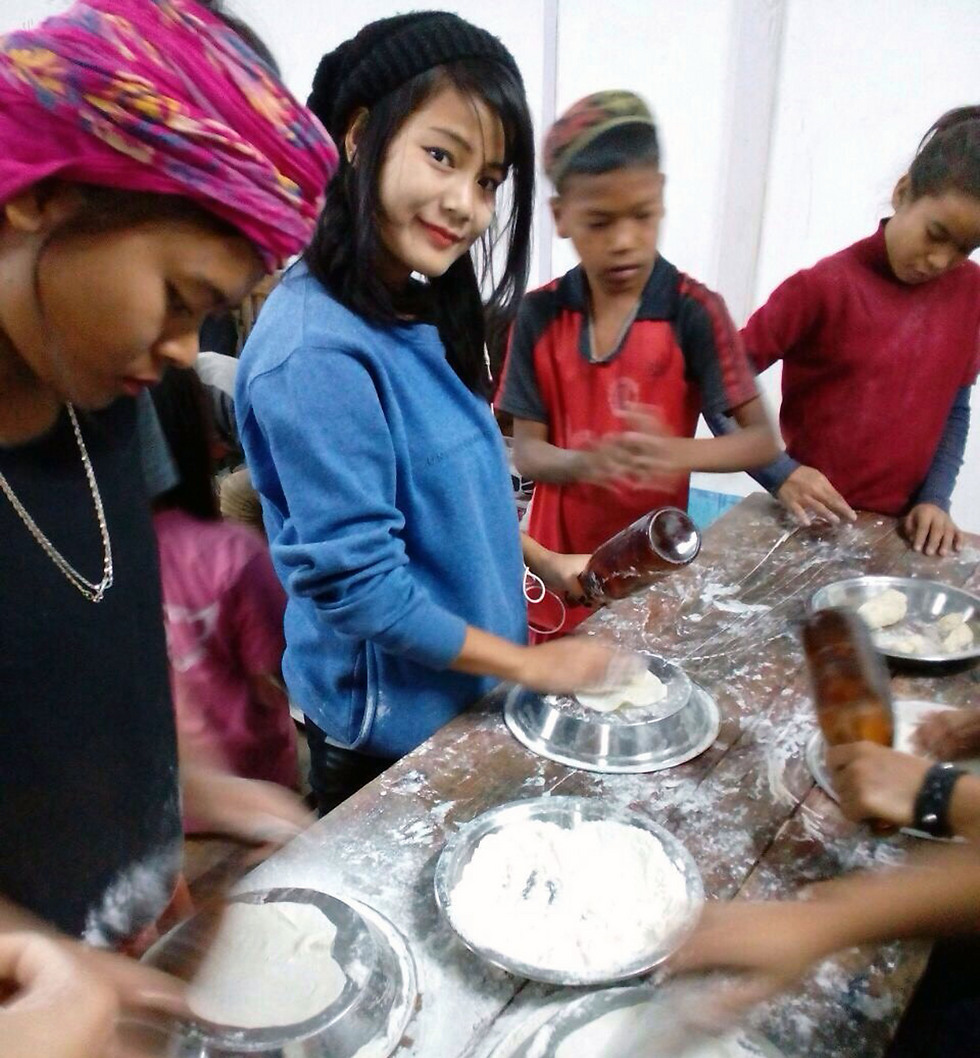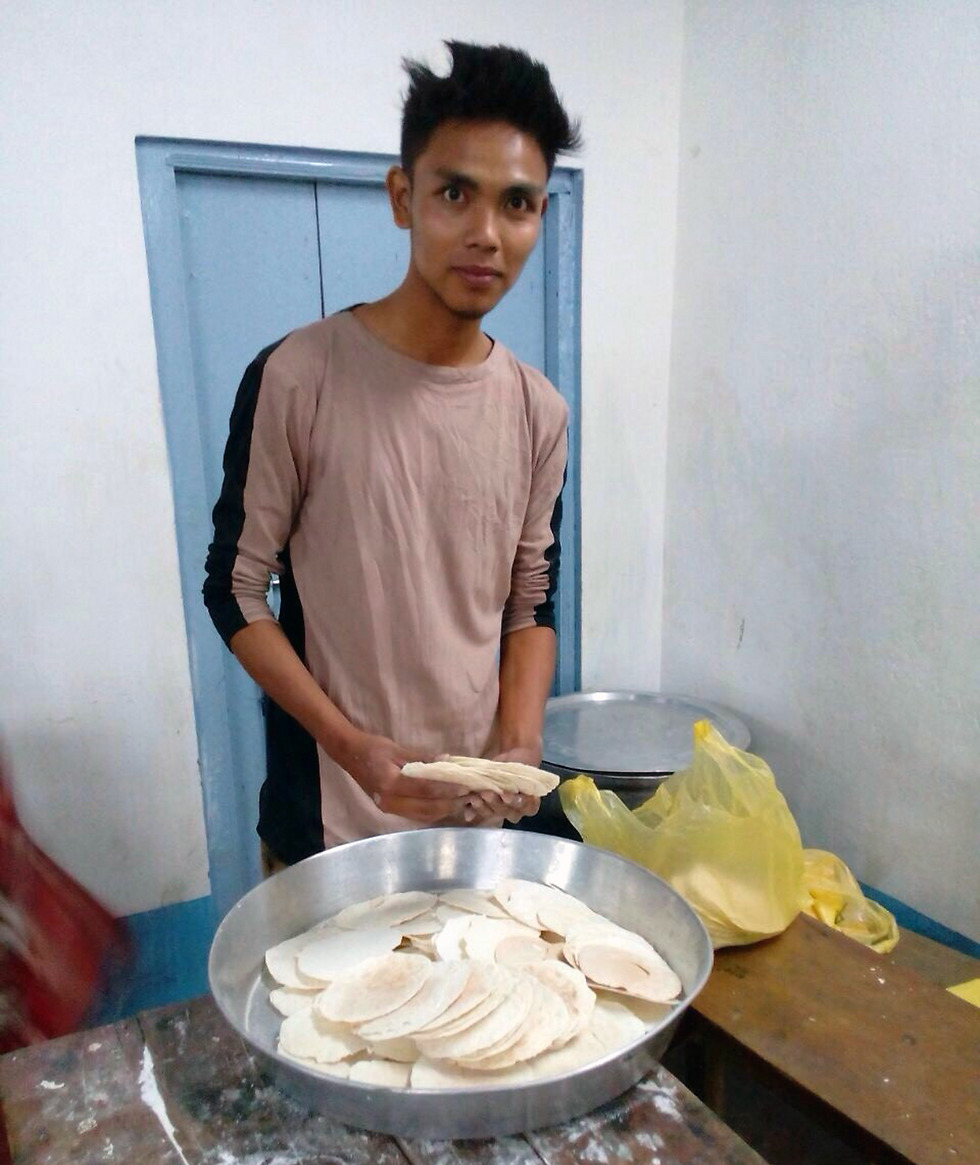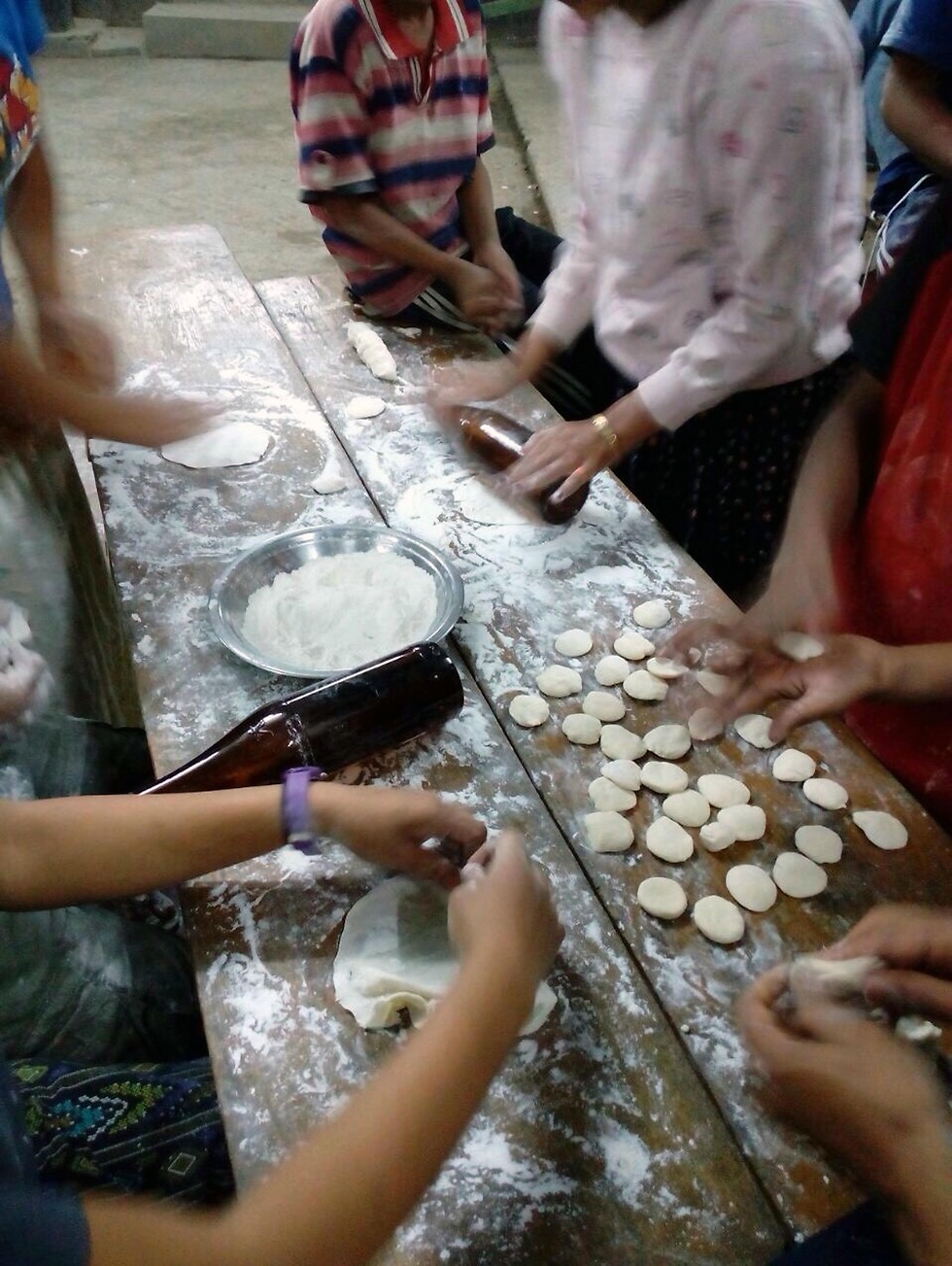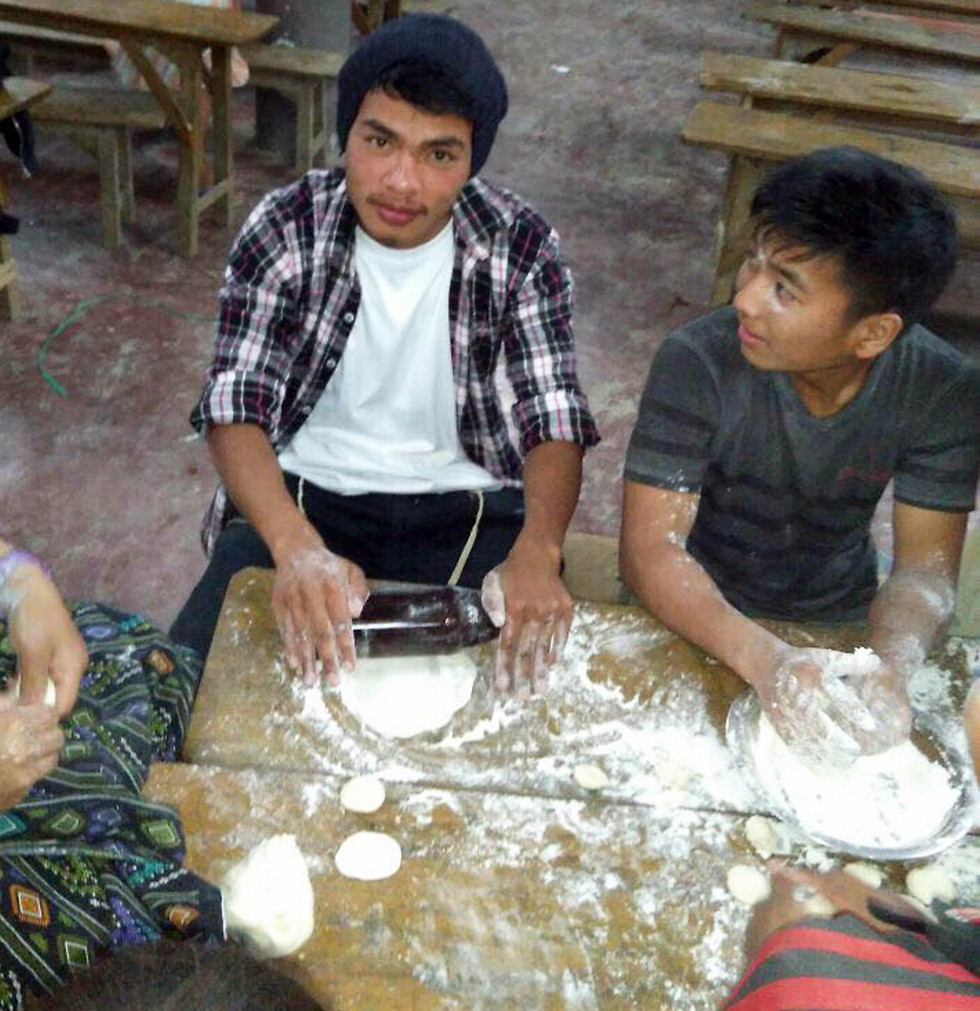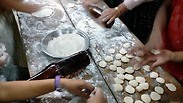
Lost Jewish tribe prepares matzah in India
Members of the Bnei Menashe community in Manipur begin preparing for passover, including by handmaking matzah.
The Bnei Menashe community throughout the remote northeastern Indian state of Manipur today began preparing for Passover—including by baking matzah, the holiday’s traditional unleavened bread—at the Shavei Israel Hebrew Center in Churachandpur.
“The experience of seeing the entire community kneading, rolling, and then baking the dough—all as the timer calls out the minutes—is amazing,” said Ohaliav Haokip, 31, of Churachandpur. “Everyone present can feel the pressure of baking the matzah in time—it’s reminiscent of Biblical times, and our forefathers’ hurrying to flee Egypt… I hope for a very special Seder this year—and next year in Jerusalem!”
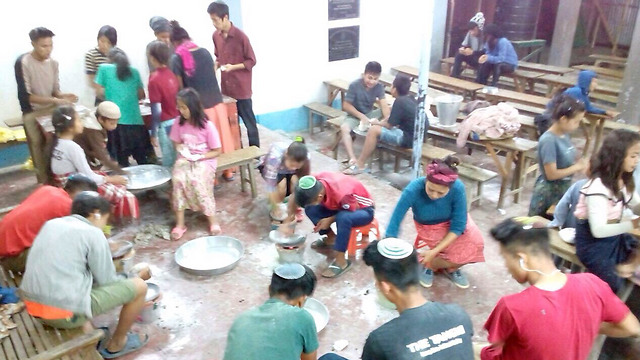
The Bnei Menashe are believed to be descendants of the tribe of Manasseh, one of the Ten Lost Tribes exiled from the Land of Israel more than 2,700 years ago by the Assyrian empire. So far, some 3,000 Bnei Menashe have immigrated to Israel, including more than 1,100 in the past four years and an additional 102 who arrived in Israel from Mizoram, India, in February. Some 7,000 Bnei Menashe remain in India.
“Passover symbolizes the Jewish people’s deliverance and it is a festival that resonates deeply for the Bnei Menashe,” said the founder and chairman of Shavei Israel, Michael Freund. His nonprofit organization explains its “aim of strengthening the ties between the Jewish people, the State of Israel and the descendants of Jews around the world.”
“In the far-flung regions of northeastern India, thousands of Bnei Menashe will sit down on Passover eve to conduct the traditional Seder, which embodies the hope they have been nurturing for generations: to make aliyah and return to the land of their ancestors, the Land of Israel.”
Down through the generations and into the last century, the Bnei Menashe continued to practice Biblical Judaism and marked Passover with a number of rituals, which included the removal of any bread from their homes and refraining from its consumption during the holiday as well as offering the Passover sacrifice.
In addition, each village priest would recite a series of ancient prayers, such as “Miriam’s Song,” which echoed the Biblical account of the Exodus and its aftermath, describing how their ancestors—the Bnei Menashe—were redeemed from slavery in Egypt, crossed the Sea of Reeds and were guided by a pillar of fire and clouds of glory until they reached the Promised Land.
In recent decades, the Bnei Menashe have embraced contemporary Judaism and adopted its practices.










